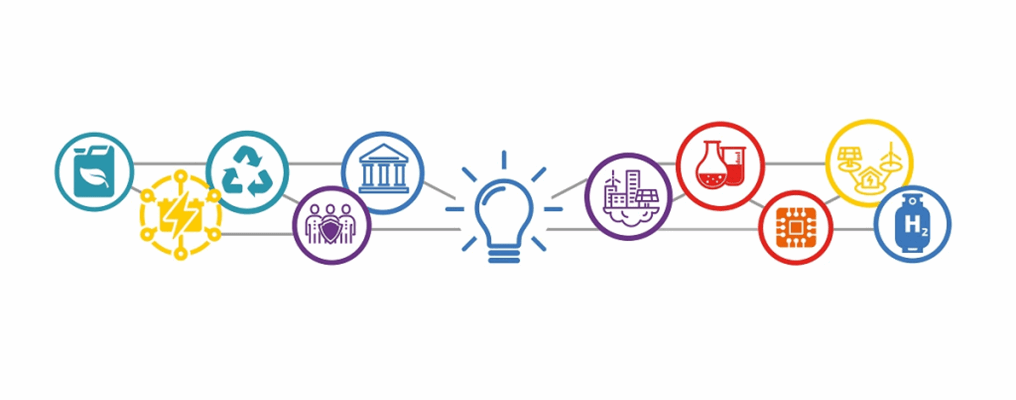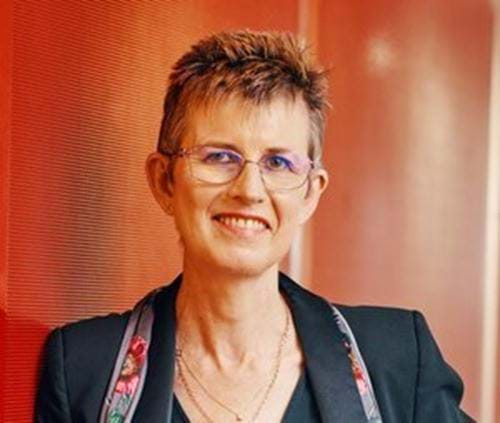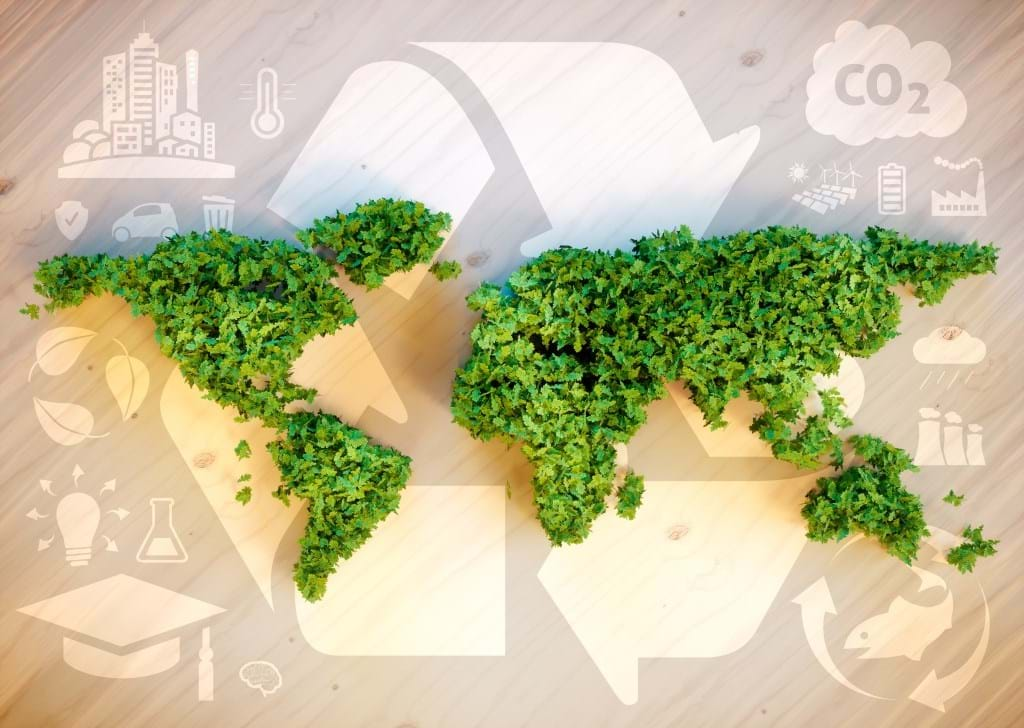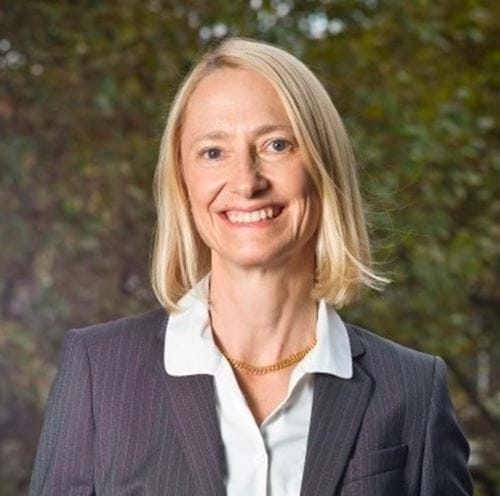Renew, Sustain, Disrupt and Advance – discussing the challenges faced by chemical engineers. #Chemeca

15th September 2020
Chemical engineers create innovative technologies and solutions, adapt to disruption, and make processes more efficient and sustainable to benefit society.
But when the world is faced by unexpected challenges such as COVID-19, how do we create, maintain and improve upon safe, sustainable and cost effective solutions?
Despite the disruption of the pandemic, the organising committee for our Chemeca conference - made up of volunteer members and hosted by IChemE, Engineers Australia, The Royal Australian Chemical Institute and Engineering New Zealand – were keen to ensure sharing knowledge on these challenges still took place.
So our physical conference has been reshaped into a series of one-hour to 90 minute webinar sessions across four weeks and renamed Bite-Sized Chemeca. Under the theme ‘renew, sustain, disrupt and advance’, our expert engineer plenary speakers and panellists will discuss and present upon the hot topics affecting both industry and academia, including on COVID-19, industry 4.0, circular economy and energy efficiency.
Ahead of the event in two weeks’ time (29 September), we caught up with Dr Bronwyn Evans, Chief Executive of Engineers Australia, and our Deputy President, Jane Cutler who will be delivering plenary sessions in week one and two, respectively. Read their thoughts on how engineers might need to adapt to address these challenges and gain an insight into their plenaries below.

Name: Dr Bronwyn Evans
Job title and organisation: Chief Executive Officer (CEO), Engineers Australia
Bio: Dr Bronwyn Evans is the CEO of Engineers Australia, the Chair of Building 4.0 CRC, a Director of the Australia-Japan Foundation and a member of the University of Wollongong’s Council. Most recently she was the CEO of Standards Australia and Vice President (Finance) of the International Standards Organisation (ISO).
Bronwyn has previously held positions in innovation initiatives, including as Chair of MTPConnect (the Industry Growth Centre for Medical Technologies and Pharmaceuticals) and is a member of the Industry 4.0 Advanced Manufacturing Forum Leadership group. She has over 35 years’ experience in various engineering roles, including at Cochlear and GE Healthcare. She has been recognised as one of Australia’s 100 most influential engineers and recognised as a 100 Women of Influence.
Can you briefly explain what your presentation Industry response to COVID-19 – now and forever? – with a focus on the aviation industry – transform, reform or retire, will be about?
The airline industry is an important part of almost every aspect of the Australian economy – from tourism to supply chains to international trade and much, much more. In the midst of the COVID-19 pandemic, the airline industry has been severely impacted. How will this industry respond to COVID-19 and what innovations can we expect?
QANTAS CEO Alan Joyce recently commented in an interview that Qantas spends $4.6B on fuel annually. And in the post-COVID world, they will look to use sustainable aviation fuel. So, although applied to the aviation sector, almost every industry will respond to COVID-19 by aiming to emerge from the pandemic by being more sustainable, more agile, more customer-focused and more flexible for staff.
This year’s theme for Bite-sized Chemeca is Renew, Sustain, Disrupt and Advance - what does this mean to you? Why are these important themes for engineers and in particular chemical engineers?
To address the enormous challenges faced by the community and the economy - now and in the future - the elements of Renew, Sustain, Disrupt and Advance are a useful way to present what is needed to create a more resilient future, a more sustainable future and a more hopeful future.
Taking each in turn and using the aviation industry as the example:
- Renew– industry-academic-government collaborations to expedite effective learning and to communicate knowledge responsibly
In the first instance QANTAS worked with government in USA who subsidised the fuel to make it attractive to QANTAS because it was 3 times price of traditional fuels. And it is about not just deep technical knowledge, it is also about having broader skills, such as customer excellence. - Sustain – ensuring sustainability and security in providing energy, water, nutrition, and health to the population
This is all about sustainability, and responding to customer and community expectations. - Disrupt – innovations and people creating disruptive change
This industry’s work is completely disruptive, and demands ongoing improvements in aircraft and engine design. - Advance– enhancing fundamental knowledge in chemical engineering
Beyond sustainable aviation fuels, there are so many ways technology advances in aviation will need the skills of chemical engineers – materials and surface coating, for example.
Why is it important for member institutions to collaborate on sharing knowledge and lessons through physical and virtual events, such as Chemeca? How can collaboration and knowledge-sharing help engineers to influence policy and better address societal issues, such as ensuring sustainable water, energy, nutrition and healthcare to the population?
The problems of the future are multi-faceted, and that means that solving them will require multi-discipline teams of collaborators. Learning to learn and learning to harness the insights and expertise of others is a vital skill for engineers at all stages of their careers. Through events like Chemeca, you could meet someone who will challenge your thinking, someone who will make you think differently about issues and someone who will inspire you to collaborate on issues that matter to you.


Name: Jane Cutler
IChemE role: Deputy President
Bio: Jane is currently IChemE Deputy President, a Director of the Australian Maritime Safety Authority (AMSA), a Director of the Southern Ports Authority, a Director of the ChemCentreWA and a member of the West Australian Division Council of the Australian Institute of Company Directors (AICD).
Most recently she was CEO of the National Offshore Petroleum Safety Authority (NOPSEMA). Jane has previously held Vice President and senior executive positions in corporate entities in the resources sector including Woodside, BHP and Esso and in the financial services sector. She has over 35 years’ experience in various leadership, project management and engineering roles.
You will be chairing the panel session on energy efficiency in week two of Bite-Sized Chemeca. Can you give a flavour of what you and the panel will be discussing and debating?
The (draft) IChemE Climate Change Position Statement provides a backdrop to our discussion on Energy Efficiency - specifically IChemE’s Energy and Resource Efficiency good practice guide, associated case studies and how these will be enabled by new IChemE initiatives such as Industry 4.0 - digitalisation. Our panels of UK and Australian experts will explore the potential for chemical and process engineering skills to facilitate adoption of energy efficiency initiatives as the “low hanging fruit” for CO2 reduction. There is an opportunity to make significant improvements quickly, using current technology if we minimise obstacles to progress.
This year’s theme for Chemeca is Renew, Sustain, Disrupt and Advance - what does this mean to you? Why are these important themes for chemical engineers?
The theme Renew, Sustain, Disrupt and Advance is a timely reminder for all of us to challenge the way we operate. While past practices and processes may have served us well, we cannot be complacent as the future will not be the same as the past. Future events will impact society more quickly, cause greater disruption and the repercussions will reverberate around the world.
For chemical engineers, as systems thinkers, these themes should remind us to be vigilant and carefully consider the potential for unintended impacts of our professional activities, attitudes and communications. Understanding of the full lifecycle to minimise waste and increase energy and/or resource efficiency should be a common goal.
How do you think chemical and process engineers might need to adapt to enable a more sustainable future?
Back in 2006, Australia had an Energy Efficiency Opportunities Act, I understand that lots of great energy efficiency projects were identified but few - even opportunities that saved money - were implemented. It is useful to consider why not? What can we chemical and process engineers learn from this and similar experience? Is legislation needed or do we need to develop our communication and influence skills? Perhaps simply presenting the answers based on proven science and engineering principles is no longer sufficient to influence decision makers. I think we should all think about these things and what else we can do to influence decision makers to help enable a more sustainable future.
Bite-sized Chemeca is a physical turned online webinar series spread out over a period of weeks – do you think this is the future for engineering conferences and events? What do you see as the benefits and challenges to virtual and hybrid activities like this?
Virtual events and conferences enable us to share specialist knowledge and good practice wherever there is a connection to the internet. Cost, time and distance barriers to participation (and emissions) are significantly reduced. When events are totally virtual there is an equality of engagement that is not achieved in many hybrid events. However, like IChemE, Chemeca is also about people.
Connecting people through facilitating face-to-face networking opportunities which build trust and relationships, has perhaps not quite yet been achieved at virtual events and conferences to date. Perhaps technology improvements will address this. I am optimistic that as we see more online conferences (perhaps alternating with physical versions) we will also see an increase in committed members looking for volunteering opportunities to both serve the Institution for the benefit of society and network with their peers.